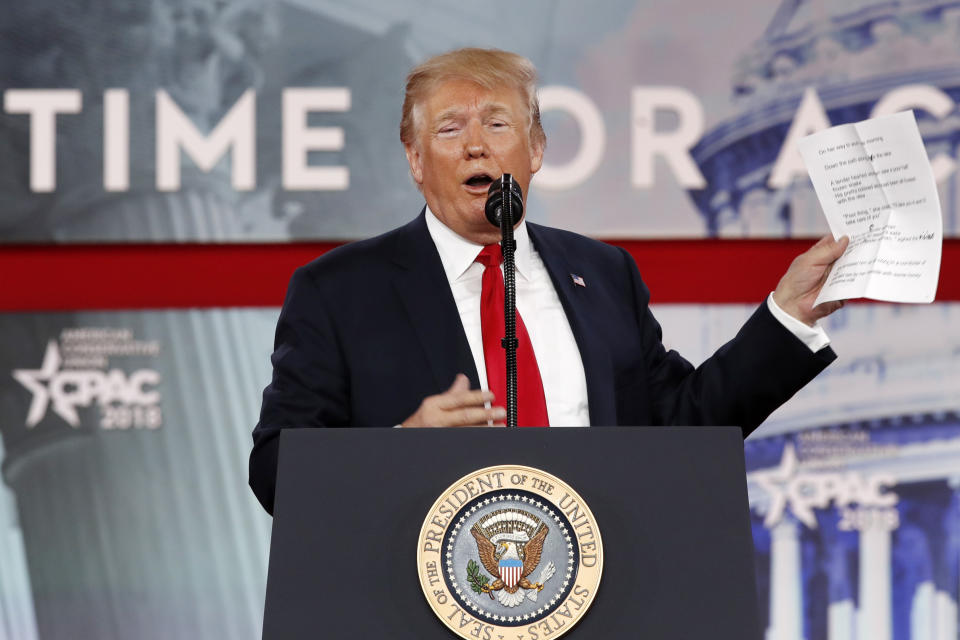As Ivanka visits South Korea, Trump targets the North
WASHINGTON — President Trump announced Friday that the United States was imposing a new round of sanctions taking aim at North Korea, the latest effort to tighten the economic vise in response to the Stalinist regime’s nuclear and ballistic missile programs. The new measures chiefly target ships and shipping companies in mainland China, Taiwan and the North.
“We imposed today the heaviest sanctions ever imposed on a country before,” Trump declared at the Conservative Political Action Conference (CPAC) just outside Washington, D.C. “And frankly, hopefully something positive can happen; we will see.”
The president’s announcement came as his daughter Ivanka, one of his closest advisers, visited South Korea for the closing ceremonies of the Olympic Games.
At a dinner with South Korean President Moon Jae-in, the first daughter said her trip aimed in part to “reaffirm our commitment to our maximum pressure campaign to ensure that the Korean Peninsula is denuclearized.”
The new sanctions target 56 vessels, shipping companies and other firms that Washington suspects of helping North Korea evade a series of international sanctions meant to starve that country of fuel. U.S. officials say that China has pared down its economic relationship with its de facto client state, but that Chinese firms continue to help the regime in Pyongyang.

The measures hit entities in North Korea, mainland China, Taiwan, Singapore, the Marshall Islands, Tanzania and Panama, according to the Treasury Department.
It’s not clear to what extent the new measures will change North Korean dictator Kim Jong Un’s behavior. U.S. experts say the country sees its weapons programs as an insurance policy to guarantee regime survival.
In a briefing at the White House, Treasury Secretary Steve Mnuchin told reporters that multiple rounds of sanctions were “beginning to have a significant impact on their ability to fund their programs.” He did not specify whether he meant the country’s nuclear and missile endeavors.
The new measures cover “virtually all the ships they’re using at this moment in time” to get fuel into the country and exports to overseas markets, Mnuchin said. Asked whether the U.S. planned to board vessels bound for North Korea, the secretary replied, “I cannot rule that out.”
It’s not the first time the Trump administration has targeted shipping. In September, it barred ships and aircraft from U.S. soil and ports within 180 days of being in North Korea. And it applied the same ban on vessels that engaged in ship-to-ship transfers with a vessel that visited North Korea.

Later, at a joint press conference with visiting Australian Prime Minister Malcolm Turnbull, Trump raised the specter of military action if sanctions fail.
“If the sanctions don’t work, we’ll have to go ‘phase two,’ and phase two may be a very rough thing, may be very, very unfortunate for the world,” Trump said. “But hopefully the sanctions will work.”
By Trump’s standards — he has threatened to rain “fire and fury” on North Korea or “totally destroy” it — his comment was relatively mild. But military conflict with Pyongyang could turn into a catastrophic all-out war that would put millions of lives at risk in North and South Korea, as well as in nearby Japan.
Read more from Yahoo News:



